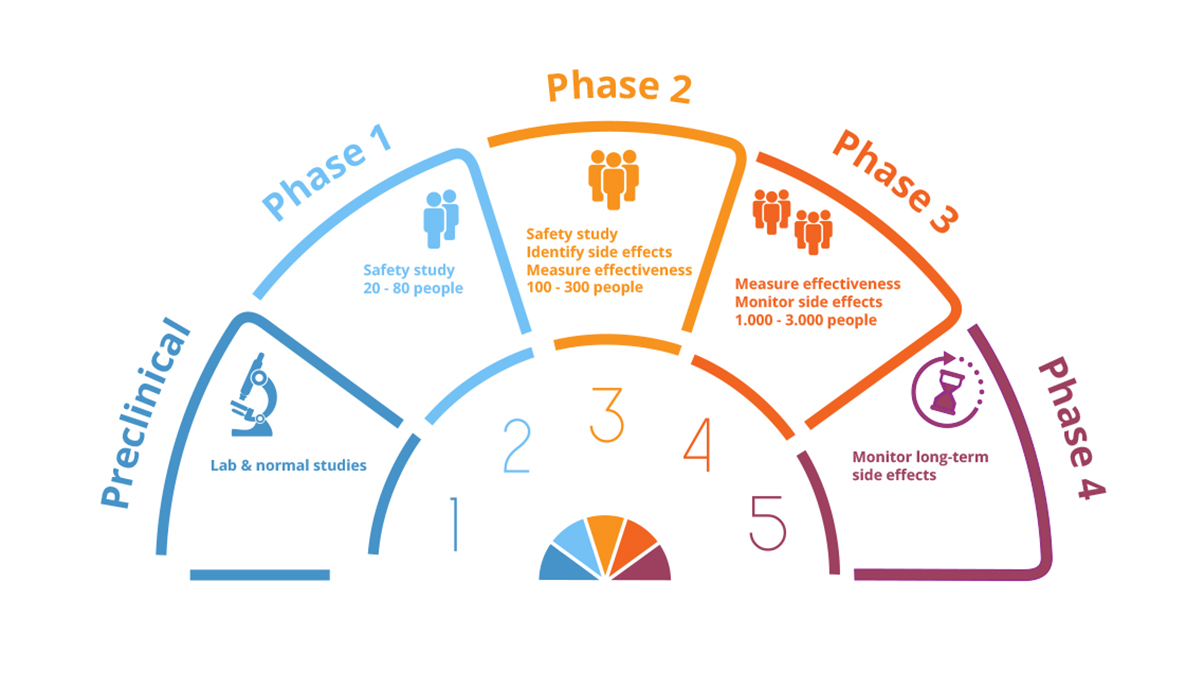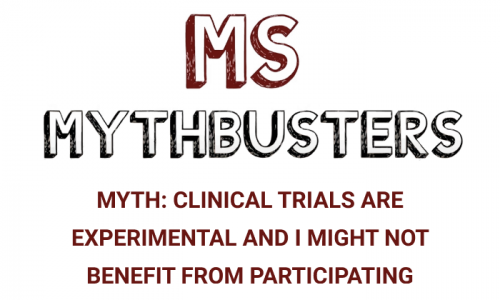- Clinical trials are essential to the development of new interventions for diagnosis and treatment, and also integral to assess effectiveness and safety.
- The MS Australia Clinical Trials Network was established to encourage high quality clinical MS research in Australia and to increase awareness of clinical trials and research studies for people with MS.
- The studies listed on the website cover different stages of the research process, ranging from surveys that can be done at home to trialing new treatments.
What are clinical trials?
Clinical trials are usually the final steps before new medical interventions are introduced to the clinic. They can cover a broad range of interventions including new diagnostic tests, new medications, psychological treatments, or new medical devices.
Clinical trials are the primary way that researchers determine if new treatments are safe and effective, including determining if the new treatments are better than current standard treatment options. Clinical trials can also provide hope and new opportunities for patients who may have exhausted current treatments and medications.
By the time an intervention reaches the trial stage, a huge amount of pre-clinical work has usually already been done to try to ensure the safety of any procedure or treatment. This pre-clinical work consists of two stages of research:
- The initial fundamental laboratory research
- Building on fundamental scientific research to drive findings towards the clinic, for example, through laboratory models (translational research).
Clinical trials, particularly pharmaceutical treatments, are undertaken in carefully monitored and regulated phases. They normally have a specific population they are looking to recruit, whether it be people at a particular stage of their disease, age, sex or the types of treatment they have undergone. Typically, researchers initially enrol a small number of participants into what is called a pilot study. The pilot study determines the feasibility of a larger trial and helps develop the methods the trial will use. The next stage is to recruit larger numbers, and after that, conduct comparative studies on a larger scale to determine the final outcome.
There are four phases of clinical trials:
 The MS Australia Clinical Trials Network
The MS Australia Clinical Trials Network
MS Australia hosts a website, the MS Australia Clinical Trials Network, that lists clinical trials and research studies in multiple sclerosis (MS) in Australia and New Zealand that people with MS can independently seek out and have the opportunity to participate in. This network was established to encourage high quality clinical MS research in Australia and to increase awareness of clinical trials and research studies for people with MS. Other sites listing clinical trials available in Australia include ANZCTR and ClinicalTrials.gov.
The MS Australia Clinical Trials Network website lists a variety of clinical trials and research studies, all with varying time commitments and assessment requirements. Some studies can even be completed at home, which decreases the effort and time required by participants. Clinical trials currently recruiting participants include:
- A trial where immune cells derived from a small pool of donors, called T cells, are introduced intravenously to a person with progressive MS to target Epstein-Barr Virus (EBV), which is implicated in MS risk and disease processes.
- Trials of new medications called BTK inhibitors, for non-relapsing secondary progressive MS (tolebrutinib) and primary progressive MS (SAR442168). These studies are currently in phase 3 where the effectiveness is being measured and side effects being monitored in a large group of people.
- A study exploring how best to support decision making around peoples’ access to cellular therapies
- A study to help improve the detection and treatment of depression in MS
- A study assessing lower limb strength and walking ability in individuals with MS
- Work to develop an app to provide tailored dietary advice for people with MS
Despite the varying nature of the studies listed on the MS Australia Clinical Trials Network website, they are all designed to deliver evidence on which to base future decisions about treatments and interventions. The range of clinical trials and research studies available makes it possible for people with MS to contribute in many ways, and in manner that suit their individual circumstances and personal interests.
There are multiple benefits of participating in these studies – such as providing people with early access to treatments, helping develop better treatments and interventions for the future, and developing a better understanding of MS. Visit the MS Australia Clinical Trials Network website and get involved in a study suitable for you.





